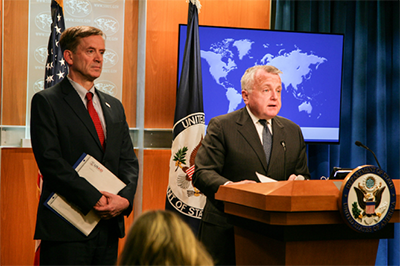
The President’s budget proposes cuts to foreign development assistance and ignores the bipartisan consensus: international development makes us stronger. From our military leaders to diplomats, we know that U.S. investment in development and humanitarian assistance is a robust return on investment. Programs like the Cooperative Development Program, Farmer-to-Farmer and the Global Food Security Act promote economic participation, strengthens the global economy, and is vital to our national security.
This week’s detailed budget proposal from the U.S. Department of State and USAID solidifies our concerns. For example, the budget proposes zeroing out the entire Development Assistance account, a $3 billion cut. This account encompasses a wide range of development areas, from global health and international education to energy independence, and economic and cooperative development. Earlier this year, USAID Administrator Mark Green stated that USAID would prioritize programs that partner with “countries on the journey to self-reliance.” Unfortunately, this budget proposal directly contradicts that goal.
We know self-reliance and independence are important components of the cooperative business model. That’s why, in two separate Hike the Hill days, NCBA CLUSA met with numerous Congressional leaders on the appropriations, budget and foreign relations committees advocating for strong investments in USAID programs in Fiscal Year 2020, including the Cooperative Development Program (CDP).
CDP seeks to build sustainable businesses and communities through the formation and expansion of cooperative businesses. CDP, which has earned bipartisan support in Congress because of its successful track record, has received increased interest from foreign governments seeking assistance in the past several years, as well as growing interest from U.S.-based cooperative organizations to participate in cooperative programs across the world. To address the growing demand for CDP funding, NCBA CLUSA has requested $17 million for Fiscal Year 2020, a $5 million increase from last year’s funding.
The international development community has long supported strategies that will help people capture economic opportunity, like cooperative businesses. Cooperatives in developing countries help build a more inclusive economy with greater participation and empower workers to earn a greater percentage of the profits they help create by moving up the supply chain.
NCBA CLUSA will continue its advocacy work urging Members of Congress to reject this budget proposal and support robust investments in development strategies that work.


